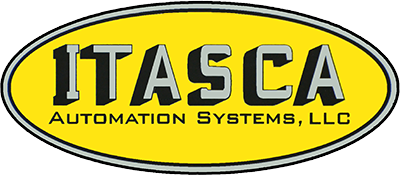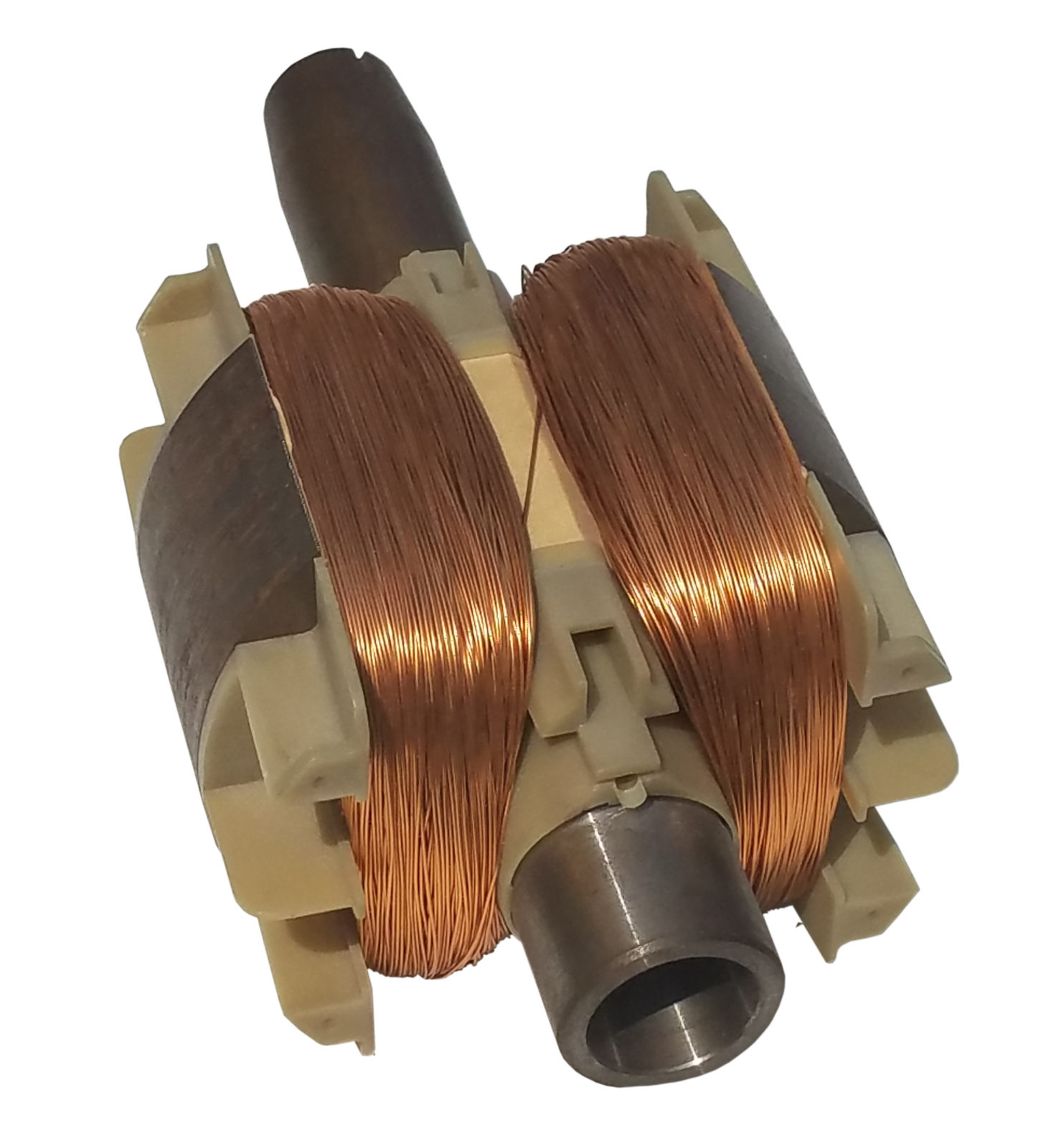In the world of precision manufacturing, coil winding plays a crucial role across various industries, from electronics and automotive to aerospace and telecommunications. And one of the most effective tools in coil production is the multi-spindle coil winder, a type of automatic winding machine that enables the efficient winding of multiple coils simultaneously. These machines are designed to increase production speed and ensure accuracy, making them essential for high-volume coil manufacturing. But what kinds of materials can be wound using these machines? The versatility of multi-spindle coil winders is one of their greatest strengths, as they can handle a wide range of materials suited for different applications.
At Itasca Automation Systems, we design and manufacture high-performance multi-spindle coil winders tailored to the specific needs of our clients. So let’s explore the various materials that can be wound using a multi-spindle coil winder and how these materials are applied across different industries. After all, by understanding the capabilities of this equipment, you can better determine how a multi-spindle coil winder can benefit your production processes.
1. Copper Wire: The Most Commonly Wound Material
When it comes to coil winding, copper wire is by far the most common material used, and for good reason. Copper’s high electrical conductivity, thermal conductivity, and malleability make it ideal for producing a wide range of electrical components. Copper wire is used in nearly every industry that requires coils, including electronics, automotive, telecommunications, and energy.
Why Copper Wire is Ideal for Coil Winding
- Electrical Conductivity: Copper is one of the best conductors of electricity, which is why it’s used in transformers, motors, inductors, and other electrical components.
- Malleability: Copper is highly malleable, meaning it can be easily shaped and wound into tight coils without breaking.
- Thermal Conductivity: In applications where heat dissipation is important, copper’s ability to transfer heat efficiently makes it a preferred choice.
Applications for Copper-Wound Coils
- Transformers: Copper-wound transformers are used to step up or step down voltage levels in power transmission systems.
- Electric Motors: The windings inside electric motors are typically made from copper wire, providing the magnetic field needed to convert electrical energy into mechanical motion.
- Inductors: Copper wire is used in the production of inductors, which are used in a variety of electronic devices to store energy in a magnetic field.
Multi-spindle coil winders are ideal for winding copper wire because they can handle multiple spools at once, dramatically increasing production efficiency. With precise control over tension, speed, and the number of turns, our automatic winding machines ensure that each copper coil is wound with consistency and accuracy.
2. Aluminum Wire: A Lightweight Alternative to Copper
While copper is the most commonly used material for winding, aluminum wire offers an alternative for certain applications where weight is a concern. Aluminum is lighter and less expensive than copper, making it a popular choice for industries that prioritize weight reduction, such as automotive and aerospace.
Advantages of Aluminum Wire
- Weight: Aluminum is significantly lighter than copper, making it an ideal choice for applications where weight savings are critical, such as in electric vehicles and aircraft.
- Cost: Aluminum is less expensive than copper, which makes it a more economical option for large-scale projects that require extensive winding.
- Corrosion Resistance: When properly coated or treated, aluminum offers good resistance to corrosion, which makes it suitable for outdoor or harsh environments.
Applications for Aluminum-Wound Coils
- Electric Vehicle Motors: Many electric vehicle manufacturers use aluminum wire for winding motors, as the reduced weight improves the vehicle’s overall efficiency.
- Power Transmission: Aluminum-wound transformers are used in high-voltage power transmission systems due to their lower cost and lighter weight.
- Aerospace Components: In the aerospace industry, where weight is a critical factor, aluminum-wound coils are used in various avionics systems and power generators.
Multi-spindle coil winders can be adapted to work with aluminum wire, ensuring precise winding while minimizing wire breakage or deformation. Our automatic winding machines are equipped with advanced tension control systems that accommodate the unique properties of aluminum wire, ensuring optimal performance during production.
3. Magnet Wire: Precision and Insulation
Magnet wire, also known as enamelled wire, is a type of copper or aluminum wire coated with a thin layer of insulation. This insulation allows for tight winding of coils without causing short circuits between the wires. Magnet wire is widely used in applications where coils must carry current without overheating or shorting, such as in transformers, motors, and inductors.
Characteristics of Magnet Wire
- Insulation Coating: The enamel insulation on magnet wire prevents the coils from shorting, allowing for closer winding and improved space efficiency.
- High-Temperature Resistance: Many types of magnet wire are designed to withstand high temperatures, making them suitable for applications in harsh environments or high-power devices.
- Precision Winding: The smooth surface of magnet wire enables precision winding, which is essential for achieving optimal performance in electrical devices.
Applications for Magnet-Wound Coils
- Transformers: Magnet wire is used extensively in the production of transformers due to its insulating properties, which allow for efficient and safe current flow.
- Motors: In electric motors, magnet wire provides the windings necessary to generate the electromagnetic fields that power the motor.
- Inductors: Magnet wire is used in inductors to create tightly wound coils that store energy in the form of a magnetic field.
Our multi-spindle coil winders are specifically designed to handle the delicate nature of magnet wire, ensuring that the enamel insulation remains intact during the winding process. With programmable control over wire tension and winding speed, our machines ensure that each coil is wound with precision, minimizing the risk of wire damage or performance degradation.
4. Litz Wire: Reducing Eddy Currents in High-Frequency Applications
Litz wire is a specialized type of wire used in applications that involve high-frequency currents. Unlike traditional wire, which consists of a single conductor, Litz wire is made up of many thin, individually insulated strands that are twisted or braided together. This construction reduces the skin effect and eddy current losses that occur in high-frequency applications, making Litz wire ideal for use in transformers, inductors, and motors that operate at high frequencies.
Benefits of Litz Wire
- Reduced Eddy Currents: The unique construction of Litz wire reduces eddy current losses, improving efficiency in high-frequency applications.
- Improved Flexibility: Litz wire is more flexible than solid wire, allowing for tighter winding and more compact coil designs.
- Enhanced Performance: In applications where high-frequency currents are present, Litz wire ensures better overall performance by minimizing losses due to the skin effect.
Applications for Litz-Wound Coils
- High-Frequency Transformers: Litz wire is commonly used in transformers designed for high-frequency power supplies, where efficiency and performance are critical.
- Inductors for RF Applications: In radio frequency (RF) applications, Litz wire-wound inductors help reduce losses and improve signal clarity.
- Electric Motors for High-Speed Applications: Litz wire is often used in motors that operate at high speeds, ensuring efficient current flow without overheating.
Our multi-spindle coil winders can be customized to accommodate the complex construction of Litz wire, ensuring that each strand is wound precisely and without damage. By automating the winding process, we help manufacturers produce high-performance coils with Litz wire that meet the demanding requirements of high-frequency applications.
5. Fiber Materials: Non-Metallic Coils for Specialized Applications
While most coil winding applications involve metallic wires, there are certain industries that require non-metallic coils made from fiber materials such as Kevlar, nylon, or glass fibers. These fiber-based coils are used in specialized applications, such as in the aerospace and defense industries, where they may be used in components that require high tensile strength or resistance to extreme environmental conditions.
Characteristics of Fiber Materials for Coil Winding
- High Tensile Strength: Fiber materials such as Kevlar offer exceptional tensile strength, making them suitable for use in applications that require durability under stress.
- Heat and Chemical Resistance: Many fiber materials are resistant to heat, chemicals, and corrosion, making them ideal for use in harsh environments.
- Lightweight: Fiber-based coils are lighter than metal-based coils, which is an advantage in applications where weight is a critical factor.
Applications for Fiber-Wound Coils
- Aerospace Components: Fiber-wound coils are used in aerospace applications where weight reduction and resistance to extreme temperatures are important.
- Defense and Military Equipment: Fiber materials are used in the production of coils for military and defense equipment that must withstand harsh environmental conditions and mechanical stress.
- Specialized Medical Devices: In certain medical devices, fiber-based coils provide the necessary strength and flexibility without adding weight or bulk.
Multi-spindle coil winders designed for fiber materials offer precise control over tension and winding patterns, ensuring that these non-metallic coils meet the stringent requirements of specialized applications.
Itasca Automation Systems: Your Partner for Advanced Coil Winding Solutions
At Itasca Automation Systems, we understand the importance of precision and versatility in coil winding applications. And with this in mind, our automatic winding machines, including multi-spindle coil winders, are designed to handle a wide range of materials, from traditional copper and aluminum wires to specialized materials like Litz wire and fiber-based coils. By offering advanced coil winding systems, we help manufacturers meet the demands of industries ranging from electronics and automotive to aerospace and telecommunications. So if you’re looking to enhance your production capabilities with reliable, high-performance coil winding equipment, explore our solutions today. At Itasca Automation Systems, we’re committed to helping you achieve greater efficiency and precision in each and every project.




Comments are closed